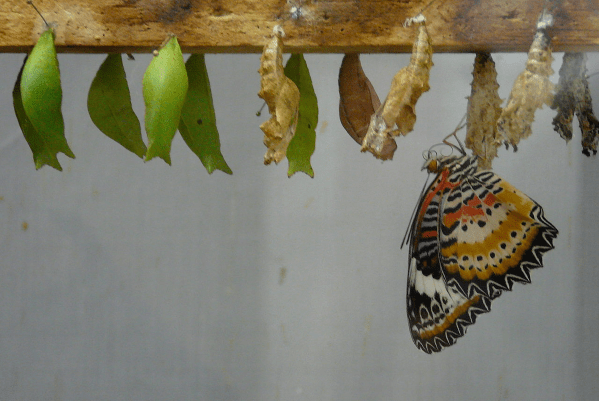There’s a saying among people with Retinitis Pigmentosa: “Being blind isn’t hard. Going blind is hard.” I’m not sure that being blind is easy, exactly, but I do believe that this season, the transition between sight and blindness, will probably be one of the hardest of my life.
Part of this is the basic sense of loss, and loss of control. Something I once had is disappearing, and there is nothing I can do to stop it. I don’t know—can’t know—what I will be able to see next year this time, or five years down the line. It’s hard to literally watch my vision spark and fizzle away.
But that sense of loss isn’t really the hardest part. The hardest part is just how much work it is to go blind. Because I’m not just losing my sight; I’m losing all of my habits, routines, and processes that rely on it.
Every time I use my eyes to locate something, track something, or assess something, to organize or to remind myself of something. Every task that relies on even the tiniest bit of visual information-gathering. All of them have to be reconsidered and relearned.
Because of course there are different ways to do most of these things. I can replace my lost abilities, can replace the visual information with information from my other senses or my pieces of assistive technology. But it means changing the way I’m accustomed to doing almost everything I do.
It means adaptation, and adaptation is hard.
Learning—at every turn, in every part of life, every day—is exhausting.
And demoralizing. All of these things I’m learning? They are things you’re supposed to learn as a child, not in your thirties. Actually, they’re things I did learn as a child. I learned them at two months, when I smiled back at faces that smiled at me, at three months when I grabbed a toy and shook it for the first time. I learned them when I sat up, crawled, took my first steps. When I learned to read the menus on our first computer, and went from there to reading chapter books, novels, and a list of languages stretching back to the dawn of history.
I learned them over the course of a lifetime, one skill building on another. Skills so basic and so foundational we barely think of them as skills at all. Skills that need to be mastered to the point of effortlessness so we can focus our energy and attention on the next, greater height. Now much of that knowledge and skill is becoming useless.
Many days, I feel like I’m spending all of my energy digging myself out of a hole, or bailing out a leaky boat. Like I’m running as hard as I can just to get to the starting line—never mind the finish line.
I miss the feeling of progress, the feeling that the work I’m doing is moving me forward, instead of just keeping me from falling behind, or falling apart.
And when will it end? RP is a long and slow disease. I’ll be living in this process for years, for decades even, weaning myself off of vision in bits and pieces, one task, one process at a time.
It will be hard, grueling at times, but the alternative would be much, much worse. Refusing to face the difficulty head-on and avoiding the hard work would lead somewhere worse than daily exhaustion. It would lead to stagnation and despair, and that’s something I refuse to tolerate.
So I’ll keep working, facing the days when simple tasks become suddenly arduous and stressful, finding new ways to do them, and then not giving up until they are mastered again. And hopefully, with each new adaptation and each new skill, it will get a little easier, until someday I reach that place where I can say “Going blind was hard, but being blind isn’t.”

